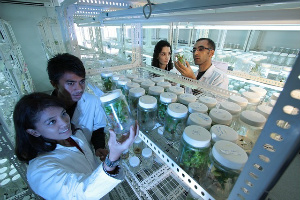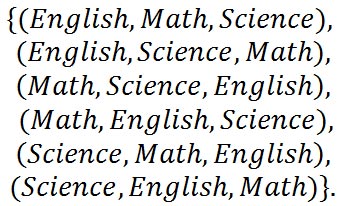English is the universal form of communication in science. Although many countries still publish journals in their native tongue, English is currently the best way to share one’s research findings with scientists in other parts of the world. But how did this come about?
Historical Progression of English as A Language of Science
 During the Middle Ages, Arabic was the language used for science in all Islamic countries, while Latin was the primary form of communication among scientists in Europe. Later, German, French, Italian, and English were all used in their respective countries, and often came to be associated with a particular discipline, e.g. German with physics or chemistry. The dominance and use of these languages changed over time, depending on the growth and decline of science, which was dependent on the economic state and culture in each country.
During the Middle Ages, Arabic was the language used for science in all Islamic countries, while Latin was the primary form of communication among scientists in Europe. Later, German, French, Italian, and English were all used in their respective countries, and often came to be associated with a particular discipline, e.g. German with physics or chemistry. The dominance and use of these languages changed over time, depending on the growth and decline of science, which was dependent on the economic state and culture in each country.
Thus, French declined after WWI as German became more dominant, and after WWII English replaced German. As the U.S. became a global leader in technology and research, English remained the primary form of communication among scientists. During the 1920’s, the need for a universal language was proposed, and a new language, Esperanto, was created for this purpose. But it was somewhat impractical and never caught on. Instead English became a universal language of science, technology and business.
Benefits vs Disadvantages
There are of course many benefits to having a universal language. The most obvious advantage is that results can be more widely accessed, and scientific exchange between countries is significantly enhanced. However, we must also consider the drawbacks. Primarily English as a language of science and technology puts non-native English speakers at a clear disadvantage compared with native speakers when it comes to writing and promoting interest in their research. It also makes it more challenging to evaluate a scientific study based purely on the findings. Lack of clarity can take away from even the most interesting study. Imagine if Einstein’s Theory of Relativity, for example, was available only in a poorly translated version for non-German speakers!
English Translation Points

The best assurance is to allow a skilled provider of translation services to do the job. It is natural that in each country there are institutions that write and publish in their native language, but what is strange is that scientists would risk having their work misunderstood or undervalued due to a poor English translation of their findings.
Conclusions
The use of a universal language to communicate in science is unavoidable. Although English has gained its status without going through a true democratic process, having a universal form of communication does allow for a wider scope and better understanding which ultimately leads to scientific progress. English as a language of science and technology will continue while the U.S. dominates research in those fields, but as we know from past experience, this situation could very well change again.
About Language Connections:
Language Connections is one of the top language service companies in the US. Over the last 30 years, we’ve focused on providing the best business translation services, interpreting services, as well as interpreter training and customized language training programs. In addition to top-tier corporate language training, we offer certified corporate interpreters and professional business translation services in 200+ languages. Our network includes linguists with backgrounds in all major industries. They’re ready to meet your needs, whether they’re for technical translation services, legal translation, government translation services, international development translation services, education translation services, life sciences translation, or something else. Reach out to us today for a free quote on our cost-efficient and timely translation services, interpreters, or other linguistic services.
Language Connections Inc.
2001 Beacon Street, Suite 105,
Boston, MA 02135
Phone: +1-617-731-3510
Email: service@languageconnections.com


